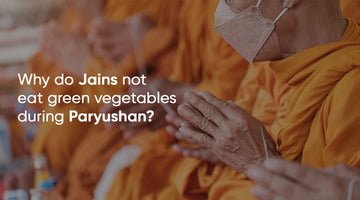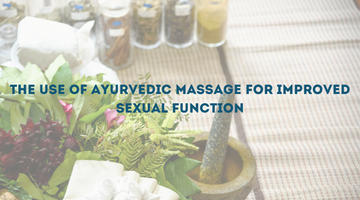THE SCIENCE BEHIND NOT EATING GREEN VEGGIES DURING PARYUSHAN
by Harsh Shah on Aug 24, 2022

'Pari' means 'All,' and 'Ushan' means 'To Burn,' implying that all past 'karmas' must be burned. Another definition of Paryushan is derived from the word 'Upshamana,' which means to suppress one's wrath, greed, hatred, stress, and tension, among other things. The major goal of celebrating Paryushan is spiritual enlightenment via self-control and self-discipline, as well as rejection of materialistic wants.
Jainism is an ancient Indian religion that promotes Ahimsa, or 'Non-Violence' to all life forms. Their strictness and dietary discipline are focused on uplifting the soul by fasting from worldly life and wants, but also incorporating spiritual upliftment and self-purification.
Jains practice vegetarianism strictly. This is because, according to Jain literature, all organisms have varied levels of senses. Bacteria, plants, and vegetables, for example, are called one-sense creatures. Humans and the majority of animals have five senses. Intentionally harming higher-than-one-sensed entities is forbidden in Jainism. More negative karma is attracted by violence towards higher-sensing beings, including the intake of meat.
"What The Body Consumes Is What The Mind Consumes."
This term is supported by medical science, which reassures that the human mind's Anger, Irritation, Sleep, and Personality are governed by its food consumption. Onion and garlic consumption is forbidden in Jainism. The reason for this, as mentioned in Ayurveda, is that onion is tamasic in nature - a trigger to irritation - and garlic is rajasic - a trigger to disrupt sleep and energy. Sattvik diet is also believed and advocated in Ayurvedic and Yogic literature to help you conquer your wants. As a result, food plays a critical role in the health of our minds and bodies.
Jain food technique leans more toward food science. Our bodies are made up of a variety of minerals, vitamins, proteins, and elements, including iron, potassium, calcium, and many more. Our forefathers devised an incredible meal plan that included the proper amount of each nutrient essential for our body's well-being. Jain cuisine places a high value on food science, which is why it prescribes what to consume in our daily diet.
Jainism prohibits the intake of root-based vegetables like onion, potatoes, garlic, carrot, radish, beetroot, and so on. Similarly, vegetables are forbidden to be eaten on particular days of the month, for example, Panchami, Ashtami, Chaudas, and so on. Jains only eat lentil-based foods during those days. This is practiced to balance a human's whole nutrition.
A lentil-based diet offers vital proteins, while fruits and vegetables give critical elements. This ensures that our bodies are nutrient-balanced and healthy. If we deviate from this specified healthy diet, so bodies become a target for illnesses.
And then there's 'Chaturmas' i.e. four months, the spiritual time from July to October when Jains observe strictness and hardness. The intake of green leafy vegetables and root vegetables is strictly prohibited. As these months approach the monsoon season, the land becomes greener and more living organisms inhabit the soil. A large number of microorganisms are harmed during crop uprooting.
Chaturmas have grown more necessary to observe, not only because of the Ahimsa principle but also to avoid injury to our bodies. This is because most microorganisms thrive on the earth during this season, hence in the current era, large doses of pesticides are applied to destroy these organisms and save the crops. As a result, Chaturmas play an important role in one's life to avoid the consumption of these chemicals. Jainism believes in nonviolence because it protects microorganisms while also protecting our bodies from harmful toxins such as pesticides.
Jains observe the auspicious period of 8 days called Paryushan Parva during these four months. There is a full ban on the intake of any form of vegetable, whether leafy or non-leafy, during this period since, according to Jain shastra, these 8 days have a high probability of heavy rain. This technique is practiced to avoid any harm caused to microorganisms by our actions or acts. Jains go out of their way to avoid harming even microbes because they feel that harm produced by negligence is just as bad as harm caused by purposeful action/deed.
During the Parva Paryushan, Jains live in a completely religious and spiritual atmosphere, seeking forgiveness for their misdeeds done consciously or unintentionally. Jains practice fast in many forms like Upvaas, Chauvihaar, and Tivihaar during Paryushan to allow the body to heal itself.
AADAR values and respect philosophy that brings peace from the inner us and not only makes you a beautiful soul but also makes this world a much better place to live within.




